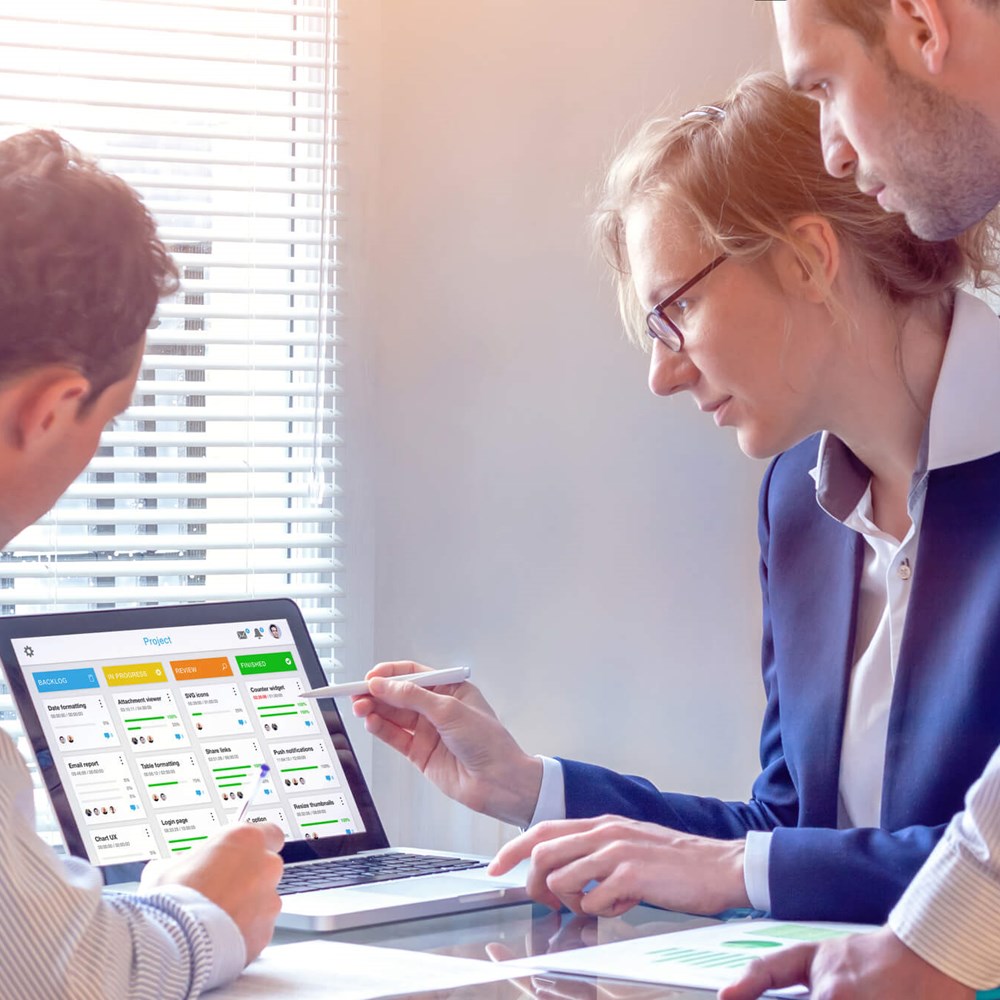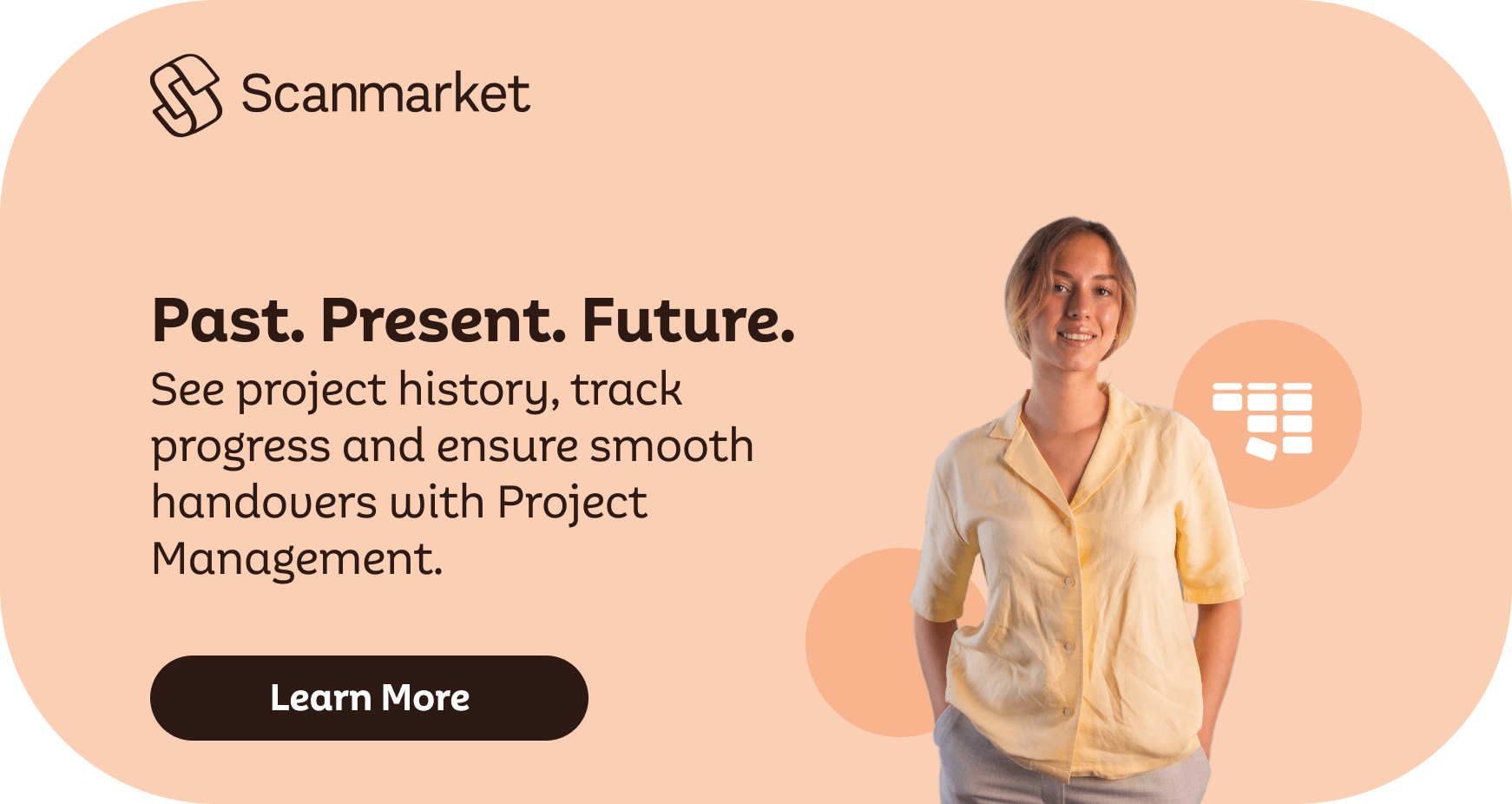Now more than ever procurement teams play a crucial role in the success of any organization. For any business to stay competitive these days it is essential that it’s procurement function efficiently acquires goods and services, while effectively managing any associated costs and risks.
To tackle these challenges, procurement teams can leverage the power of project management software. This transformative technology empowers procurement professionals by streamlining processes, enhancing team collaboration, and greatly increasing productivity.
In fact, there is a multitude of benefits that project management software brings to procurement teams.
Centralised Procurement Management
In older days, procurement processes involved managing various documents, spreadsheets, and communication channels, leading to inefficiencies, errors, and miscommunication. Project management software acts as centralized hub for procurement teams, offering a single location to store and access all procurement-related information. From vendor details and purchase orders to contracts and delivery schedules, all relevant data is consolidated and easily accessible.
This centralized repository promotes transparency, reduces duplication, and facilitates the tracking of procurement projects.
Procurement professionals can there for easily navigate through information, eliminating any time-consuming searches across multiple platforms.
Streamlined Workflow and Task Management
Procurement projects by nature involve numerous tasks, timelines, and dependencies. Manually managing all these complexities can be both overwhelming and prone to errors. Project management software provides procurement teams with an intuitive interface that allows them to create workflows, easily assign tasks, set clear deadlines, and track progress in real-time. Automated notifications and reminders ensure that team members stay correctly informed about any upcoming tasks, reducing the chances of missed opportunities or delays.
By streamlining workflow and task management, procurement professionals can focus on strategic decision-making, leading to increased efficiency and reduced project cycle times.
Effective Vendor and Supplier Collaboration
Successful procurement relies heavily on the effective collaboration and communication with vendors and suppliers. Project management software facilitates seamless collaboration by providing a platform for real-time discussions, file sharing, and document version control.
Procurement teams can effortlessly communicate with vendors, request for information, quotation, and proposal, and negotiate terms all within the software. By centralizing all communication, procurement professionals can eliminate the hassle of searching through email threads or juggling multiple platforms.
This streamlined collaboration results in enhanced communication, reduced response times, and improved supplier relationships, ultimately leading to better outcomes and increased customer satisfaction.
All-in-One Dashboards and Comprehensive Reporting
Data that is accurate and with real-time visibility is fundamental for making any informed procurement decisions. Project management software offer procurement teams comprehensive dashboards and reporting features, providing key insights into project status, budget allocation, vendor performance, and other crucial metrics.
Customizable reports and analytics empower professionals of the area to identify bottlenecks, optimize processes and make data-driven decisions. The ability to generate visual representations of data simplifies reporting to all stakeholders, enabling an effective communication and enhanced strategic planning. By having a holistic view of procurement projects, teams can proactively identify and address issues, ensuring successful project outcomes.
Risk Mitigation and Compliance
Procurement processes often involves several risks, including supplier non-compliance, contract breaches, and budget overruns. Scanmarket’s platform, helps mitigate these risks by enforcing compliance through automated approval workflows, contract management modules, and budget controls. By integrating compliance checks within the software, procurement teams can ensure that vendors meet regulatory requirements and adhere to contract terms.
Real-time tracking of budgets and expenses enables proactive risk management, preventing cost overruns and ensuring financial optimization. By reducing any potential risks, project management software enables procurement teams to operate with complete confidence.
Efficient Resource Allocation Capacity Planning
Effective resource allocation is crucial for ensuring optimal utilization of those resources, and for preventing any bottlenecks in procurement projects. Project management software empower teams with the visibility into resource availability, enabling them to allocate resources more efficiently. By considering factors such as expertise, workload, and availability, teams can assign tasks to the most capable individuals. This helps avoid overburdening employees our underutilizing any available talent.
This software also provides teams with a holistic view of resource allocation, and allows procurement managers to plan future projects effectively, identify skill gaps, and allocate training resources to enhance the overall team competency. Optimal resource allocation leads to improved productivity and efficiency.
Scalability and Integration
As organizations grow, so does the complexity of procurement processes. Project management software offer scalability to meet ever evolving needs by allowing customization, integration with other tools, and the addition of new modules.
Procurement teams can adapt the software to align with their unique needs, incorporate additional functionalities, or integrate with existing enterprise systems such as Unit4 Enterprise Resourcing Planning (ERP). This flexibility ensures that the software remains an asset throughout the organization’s growth journey, accommodating changing procurement requirements.
Improved Cost Management
Controlling and optimizing costs is a key aspect of the procurement function of any organization. Project management software helps teams of the area to optimize cost management by providing tools for budget tracking, expense monitoring, and vendor performance evaluation. Real-time insights into budget utilization and expenditure patterns enable proactive decision-making and the identification of cost-saving opportunities. By closely monitoring expenses and comparing them to budget allocations, procurement professionals can mitigate financial risks and negotiate better deals with their suppliers.
Scanmarket’s project management module can be connected to the Spend Analytics module, to empower teams with analytical capabilities and identify cost trends, forecast future expenxes, and implement strategies to drive cost savings.
Tailored Procurement Process
Project management software, tailors both the traditional 5-step and 7-step procurement processes by streamlining tasks, facilitating collaboration, enabling data analysis, and integrating with financial systems.
Organizations can leverage software solutions such as Scanmarket, to optimize their procurement activities, reduce costs, mitigate risks, and deliver successful projects efficiently. Embracing project management software is a strategic choice for businesses seeking to excel in procurement and project management.
In Conclusion
Project management software is vital tool that empowers procurement teams to streamline processes, enhance team collaboration, and increase overall productivity.
By centralizing procurement management, streamlining workflow and task management, facilitating effective collaboration, providing enhanced visibility, and reporting, enabling risk mitigation and compliance, optimizing resource allocation, and offering scalability and integration, project management software revolutionizes the procurement landscape.













